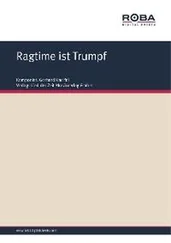Edgar Doctorow - Ragtime
Здесь есть возможность читать онлайн «Edgar Doctorow - Ragtime» весь текст электронной книги совершенно бесплатно (целиком полную версию без сокращений). В некоторых случаях можно слушать аудио, скачать через торрент в формате fb2 и присутствует краткое содержание. Жанр: Современная проза, на английском языке. Описание произведения, (предисловие) а так же отзывы посетителей доступны на портале библиотеки ЛибКат.
- Название:Ragtime
- Автор:
- Жанр:
- Год:неизвестен
- ISBN:нет данных
- Рейтинг книги:4 / 5. Голосов: 1
-
Избранное:Добавить в избранное
- Отзывы:
-
Ваша оценка:
- 80
- 1
- 2
- 3
- 4
- 5
Ragtime: краткое содержание, описание и аннотация
Предлагаем к чтению аннотацию, описание, краткое содержание или предисловие (зависит от того, что написал сам автор книги «Ragtime»). Если вы не нашли необходимую информацию о книге — напишите в комментариях, мы постараемся отыскать её.
Ragtime — читать онлайн бесплатно полную книгу (весь текст) целиком
Ниже представлен текст книги, разбитый по страницам. Система сохранения места последней прочитанной страницы, позволяет с удобством читать онлайн бесплатно книгу «Ragtime», без необходимости каждый раз заново искать на чём Вы остановились. Поставьте закладку, и сможете в любой момент перейти на страницу, на которой закончили чтение.
Интервал:
Закладка:
20
Morgan’s residence in New York City was No. 219 Madison Avenue, in Murray Hill, a stately brownstone on the northeast corner of 36th Street. Adjoining it was the white marble Morgan Library, which he had built to receive the thousands of books and art objects collected on his travels. It had been designed in the Italian Renaissance style by Charles McKim, a partner of Stanford White’s. The marble blocks were fitted without mortar. A snow fall darker than the stones of the Library lay on the streets the day Henry Ford
Morgan had ordered alight lunch. They did not say much as they dined without other company on Chincoteagues, bisque of terrapin, a Montrachet, rack of lamb, a Château Latour, fresh tomatoes and endives, rhubarb pie in heavy cream, and coffee. The service was magical, two of Morgan’s house staff making dishes appear and disappear with such self-effacement as to suggest no human agency. Ford ate well but he did not touch the wine. He finished before his host. He gazed frankly at the Morgan nose. He found a crumb on the tablecloth and deposited it in the saucer of his coffee cup. His fingers idly rubbed the gold plate.
At the conclusion of lunch Morgan indicated to Ford that he would like him to come to the Library. They walked out of the dining room and through a kind of dark public parlor where sat three or four men hoping to secure a few moments of Pierpont Morgan’s time. These were his lawyers. They were there to advise him on his forthcoming appearance before the House Committee on Banking and Finance then sitting in Washington for the purpose of inquiring into the possibility that a money trust existed in the United States. Morgan waved the lawyers away as they rose upon sight of him. There was also in attendance an art dealer in a morning coat who had traveled from Rome expressly to see him. The dealer rose only to bow.
None of this display was lost on Ford. He was a man of homespun tastes but was not at all put off by what he recognized as an empire different only in style from his own. Morgan brought him to the great West Room of the Library. Here they took chairs on opposite sides of a fireplace that was as tall as a man. It was a good day for a fire, Morgan said. Ford agreed. Cigars were offered. Ford refused. He noticed the ceiling was gilded. The walls were covered in red silk damask. There were fancy paintings hanging behind glass in heavy frames. — pictures of yellowish soulful-looking people with golden haloes. He guessed nobody had their pictures made in those days who wasn’t a saint. There was a madonna and child. He ran his fingers along the arm of his chair of red plush.
Morgan let him take it all in. He puffed on his cigar. Finally he spoke. Ford, he said gruffly, I have no interest in acquiring your business or in sharing its profits. Nor am I associated with any of your competitors. Ford nodded. I have to allow that is good news, he said, giving off a sly glance. Nevertheless, his host continued, I admire what you have done, and while I must have qualms about a motorcar in the hands of every mongoloid who happens to have a few hundred dollars to spend, I recognize that the future is yours. You’re still a young man — fifty years or thereabouts? — and perhaps you understand as I cannot the need to separately mobilize the masses of men. I have spent my life in the coordination of capital resources and the harmonic combination of industries, but I never considered the possibility that the employment of labor is in itself a harmonically unifying process apart from the enterprise in which it is enlisted. Let me ask you a question. Has it occurred to you that your assembly line is not merely a stroke of industrial genius but a projection of organic truth? After all, the interchangeability of parts is a rule of nature. Individuals participate in their species and in their genus. All mammals reproduce in the same way and share the same designs of self-nourishment, with digestive and circulatory systems that are recognizable the same, and they enjoy the same senses. Obviously this is not to say all mammals have interchangeable parts, as your automobiles. But shared design is what allows taxonomists to classify mammals as mammals. And within a species — man, for example — the rules of nature operate so that our individual differences occur on the basis of our similarity. So that individuation may be compared to a pyramid in that it is only achieved by the placement of the top stone.
Ford pondered this. Exceptin the Jews, he muttered. Morgan didn’t think he had heard correctly. I beg your pardon, he said. The Jews, Ford said. They ain’t like anyone else I know. There goes your theory up shits creek. He smiled.
Morgan was silent for some minutes. He smoked his cigar. The fire crackled. Gust of snow blown by the wind gently spattered the Library windows. Morgan spoke again. From time to time, he said, I have retained scholars and scientists to assist me in my philosophical investigations in hopes of reaching some conclusion about this life that are not within the reach of the masses of men. I am proposing to share the fruits of my study. I do not think you can be so insolent as to believe your achievements are the result only of your own effort. Did you attribute your success in this manner, I would warn you, sir, of the terrible price to be paid. You would find yourself stranded on the edge of the world and see as no other man the emptiness of the firmament. Do you believe in God? That’s my business, Ford said. Well and good, Morgan said, I would not expect any man of your intelligence to embrace such a common idea. You may need me more than you think. Suppose I could prove to you that there are universal patterns of order and repetition that give meaning to the activity of this planet. Suppose I could demonstrate that you yourself are an instrumentation in our modern age of trends in human identity that affirm the oldest wisdom in the world.
Abruptly Morgan stood and left the room. Ford turned in his chair and looked after him. In a moment the old man was in the doorway and beckoning to him with a vehement gesture. Ford followed him through the central hall of the Library to the East Room, whose high walls were covered with bookshelves. There were two upper tiers with promenades of frosted glass and polished brass balustrades so that any book could be easily removed from its place no matter how high. Morgan walked up to the far wall, pressed the spine of a certain book, and part of the shelving swung away to reveal a passageway through which a man could pass. If you please, he said to Ford, and following him into a small chamber he pressed a button that closed the door behind them.
This was an ordinary-sized room modestly appointed with a round polished table, two spindle-back chairs, and a cabinet with a glass top for the display of manuscripts. Morgan turned a table lamp with a green metal lampshade. Nobody has ever joined me in this room before, he said. He turned on a floor lamp arranged to light the display cabinet. Come over here, sir, he said. Ford looked through the glass and saw an ancient parchment covered with Latin calligraphy. That, Morgan said, is a folio of one of the first Rosicrucian text, The Chemical Wedding of Christian Rosencrutz . Do you know who the original Rosicrucians were, Mr. Ford? They were Christian alchemists of the Rhenish palatinate whose elector was Frederick V. We are talking about the early seventeenth century, sir. These great and good men promulgated the idea of an ongoing, beneficent magic available to certain men of every age for the collective use of mankind. The Latin for this prisca theologia , secret wisdom. The odd thing is that this belief in a secret wisdom is not the Rosicrucians’ alone. We know in London in the middle of the same century of the existence of a society called the Invisible College. Its members were reputed to be the very carriers of the beneficent magic I speak of. You of course do not know of the writings of Giordano Bruno, of which here is a specimen page in his own handwriting. My scholars have traced for me, like the best detectives, the existence of this idea and of various mysterious organizations to maintain it, in most of the Renaissance cultures, in medieval societies and in ancient Greece. I hope you are following this closely. The earliest recorded mention of special people born in each age to ease the sufferings of humankind with their prisca theologia comes to us through the Greek in the translated writings of the Egyptian priest Hermes Trismegistus. It is Hermes who gives the historical name to this occult knowledge. It is called the Hermetica. With his thick index finger Morgan thumped the glass above the last display piece in the cabinet, a fragment of pink stone upon which geometric scratchings were faintly visible. That, sir, may be a specimen of Hermes in the original cuneiform. And now let me ask you a question. Why do you suppose an idea which had currency in every age and civilization of mankind disappears in modern times? Because only in the age of science have these men and their wisdom dropped from view. I’ll tell you why: The rise of mechanistic science, of Newton and Descartes, was a great conspiracy, a great devilish conspiracy to destroy our apprehension of reality and our awareness of the transcendentally gifted among us. But they are with us today nevertheless. They are with us in every age. They come back, you see? They come back!
Читать дальшеИнтервал:
Закладка:
Похожие книги на «Ragtime»
Представляем Вашему вниманию похожие книги на «Ragtime» списком для выбора. Мы отобрали схожую по названию и смыслу литературу в надежде предоставить читателям больше вариантов отыскать новые, интересные, ещё непрочитанные произведения.
Обсуждение, отзывы о книге «Ragtime» и просто собственные мнения читателей. Оставьте ваши комментарии, напишите, что Вы думаете о произведении, его смысле или главных героях. Укажите что конкретно понравилось, а что нет, и почему Вы так считаете.












